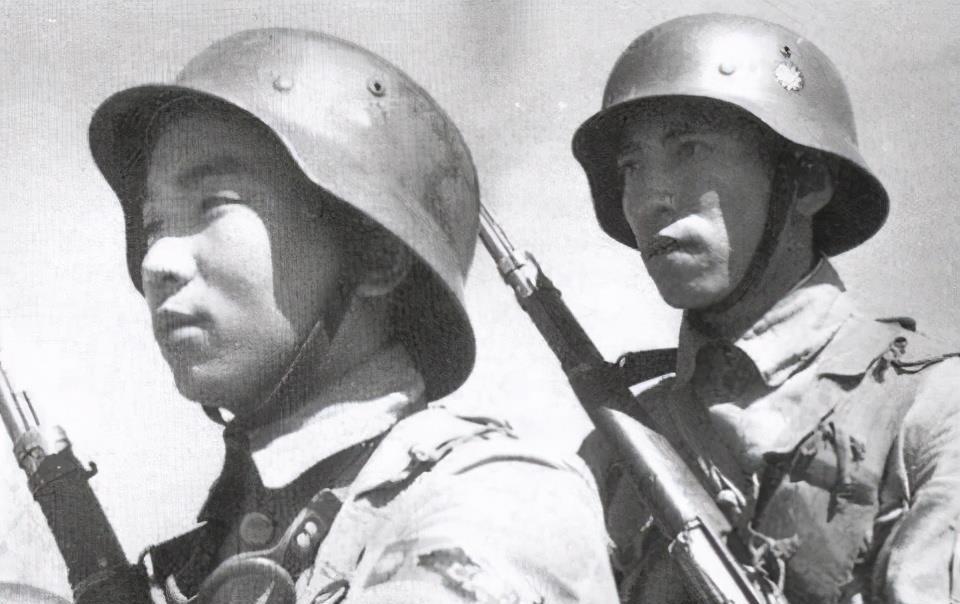During the War of Resistance Against Japanese Aggression, the 74th Army was known as the Tiger Army because of its strong combat effectiveness and repeated military achievements, and the Japanese called it the Third and Fifth Units. This unit was formed in 1937 during the Battle of Songhu and participated in almost all the large-scale battles during the War of Resistance Against Japan, the Battle of Songhu, the Battle of Nanjing, the Battle of Lanfeng, the Battle of Wuhan, the Battle of Western Hubei, the Battle of Shanggao, the Three Battles of Changsha, the Battle of Changde, and the Battle of Hengyang.

Beginning on April 9, 1945, the Japanese 20th Army, with Lieutenant General Kazuryo Bannishi, commanded five divisions and more than 100,000 people to launch an attack on the western Hunan region, with the intention of destroying the Zhijiang airfield of the Kuomintang Air Force and further attacking the enthusiasm of the Chinese military and people for the war of resistance. On the Chinese side, General He Yingqin personally commanded the powerful troops of 9 armies and 26 divisions, and its main force was the Fourth Front, the commander-in-chief Wang Yaowu. The most elite troops in China were dispatched this time, and three of the five main forces, the 74th Army, the New Sixth Army, and the 18th Army all participated in the battle, and the 73rd Army and 100 troops were also the central army troops. In order to ensure absolute superiority over the Japanese army, Tang Enbo's 27th Army and Wang Jingjiu's 10th Army also participated in the battle.
During the Battle of Xiangxi, the Chinese army had all 36 divisions equipped with American equipment, including the famous 74th Army. In this battle, the Japanese army fought very passively, and the Japanese 47th Division, 116th Division, 34th Division and other units were defeated and retreated under the strong firepower of the Chinese army. On April 15, 1945, the Japanese 34th Division, reinforced by the 58th Brigade of the 68th Division, fought a fierce battle with the Chinese army in Xinning, and then attacked Wuyang. While the Japanese 68th Division sent a brigade to attack Wuyang, all the remaining main forces attacked Wugang.
Wugang is the core of the entire early campaign of the Battle of Western Hunan Province, Wugang City has a history of more than 2200 years, here is surrounded by mountains on three sides, is an important military town in western Hunan and the economic, political and cultural center of western Hunan Province. Due to historical reasons, Wugang City has a complete moat and a wide moat, guarding Wugang City is the 172nd Regiment of the 58th Division regiment, this unit has been all equipped with american equipment at that time, the firepower is very strong. The battalion of the 74th Army built a lot of fortifications and three lines of defense outside the city wall, and the local people helped to strengthen the defense line with glutinous rice and triad soil.
The Japanese 68th Division, knowing that there was only one battalion defending the city, shouted that it could take Wugang in three hours and defeat the Chinese troops inside the city. On April 27, 1945, the Japanese 68th Division concentrated hundreds of heavy artillery to bomb Wugang City, and then the infantry attacked Wugang Castle under the cover of tank troops, and the battalion of the 74th Army immediately counterattacked in the face of the Japanese attack. The Japanese attacked for three consecutive days, but they failed to take Wugang, but suffered heavy losses.
The Japanese 68th Division, under the supervision of its superiors, finally organized a death squad similar to the kamikaze special attack team, and each daredevil carried a large explosive pack and prepared to blow up the city wall after approaching it. However, at this time, the Japanese army was no longer an elite unit in the early stage of the War of Resistance, and many Japanese officers and soldiers refused to organize a death squad after learning that they wanted to organize a death squad, and finally the Japanese army took the form of a lottery to form a death squad. This unit did explode more than a dozen gaps in the city wall, but it was immediately blocked by the officers and men of the 74th Army and the people in the city. The Japanese army also adopted the tactic of man-sea, climbing up the ladder, and the 74th Army used a flamethrower to burn the ladder and strafed with submachine guns, and the Japanese suffered heavy losses. After seven days of fierce fighting between the two sides, Wang Yaowu ordered the 44th Division to launch an attack behind the 68th Division, the Japanese army believed that the main force of the Chinese army came to reinforcements, and fled one after another, the defenders inside the city immediately launched a counterattack, and the Japanese army fled to the suining line outside Wuyang.
In the Battle of Wugang, the 74th Army fought fiercely with half a division of the Japanese army for seven days and seven nights with the strength of a battalion, and finally launched a counterattack against the Japanese army, and finally defeated the Japanese army, which has to be said to be a miracle in the history of the War of Resistance.